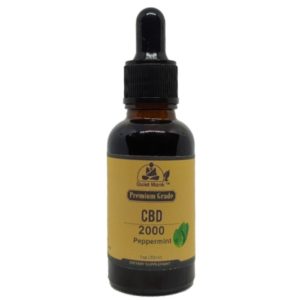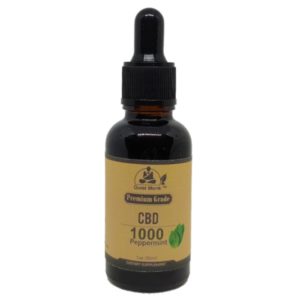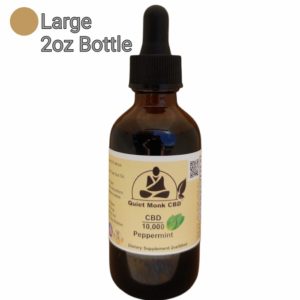
Anxiety disorders rank as the most prevalent mental health conditions globally, inflicting significant social and economic impacts. Traditional treatments for these disorders often come with undesirable side effects and limited success rates. Cannabidiol (CBD), a compound derived from the Cannabis plant, shows promising therapeutic potential for a range of health issues. Following the recent legalization wave, CBD has garnered substantial interest as a viable anxiety remedy, supported by data indicating its safety, good tolerance, minimal side effects, and low risk of abuse or dependency in humans.
Pre-clinical studies using animal models to simulate fear and anxiety behaviors have revealed that CBD may possess anxiety-reducing, stress-relieving, compulsive behavior mitigating, and panic-attenuating properties. Early human trials, involving both healthy individuals and those with social anxiety disorders, point towards the anxiolytic benefits of CBD.
While these results are encouraging, more research is necessary to confirm CBD’s effectiveness across various anxiety conditions, determine optimal dosages, and assess its long-term benefits. Notably, most of these studies have predominantly involved male subjects. Given the differing prevalence, symptoms, and treatment responses to anxiety disorders between genders, it’s crucial to direct future investigations towards understanding these differences and how they might influence CBD’s role as a potential anxiety treatment.
Anxiety disorders stand as the most widespread mental health issues globally, resulting in substantial societal and economic costs. Characterized by an excessive anticipation of future threats and a profound sense of fear, anxiety leads to maladaptive behaviors and impairments. These disorders are linked with panic attacks, avoidance behavior, poor quality of life, strained relationships, unemployment, and a higher suicide risk. Neuropsychiatric conditions like generalized anxiety disorder (GAD), social anxiety disorder (SAD), specific phobias, panic disorder, and agoraphobia fall under this umbrella. Though no longer classified as anxiety disorders in the latest DSM-5, obsessive-compulsive disorder (OCD) and post-traumatic stress disorder (PTSD) still exhibit significant anxiety-related symptoms. These conditions tend to be long-lasting and often coexist with other mental illnesses.
The primary pharmaceutical treatments for anxiety disorders include selective serotonin reuptake inhibitors, serotonin-norepinephrine reuptake inhibitors, monoamine oxidase inhibitors, tricyclics, partial 5-HT1A receptor agonists, and benzodiazepines. However, these treatments often come with side effects and are only effective for about 40–60% of patients. Psychological methods like cognitive behavioral therapy, exposure therapy, and cognitive processing therapy are alternative treatments but can be expensive and context-specific. This situation underscores the urgent need for new, effective treatments for anxiety disorders.
Cannabidiol (CBD), a component of the Cannabis plant, shows promise across various neuropsychiatric disorders. Epidiolex® (99% CBD; 0.1% Δ-9-tetrahydrocannabinol [THC]) has been approved in some regions for epilepsy treatment, and studies indicate CBD’s efficacy for pediatric epilepsy and a range of other conditions, including social anxiety, schizophrenia, Parkinson’s disease, colitis, cancer, and more. CBD’s pharmacological profile is distinct from THC, primarily interacting with receptors in the central and peripheral nervous systems known to regulate fear and anxiety. It’s believed that CBD’s anxiolytic effects at low and intermediate doses involve 5-HT1A activation, while its actions at higher doses involve TRPV1 antagonism. Furthermore, CBD may enhance anandamide levels and indirectly increase CB1 receptor activation, contributing to its anxiolytic effects.
Methods of Consumption
| Method | Description |
|---|---|
| Tinctures | Liquid extracts that are taken sublingually (under the tongue) using a dropper. This allows for quick absorption into the bloodstream. |
| Capsules | Pre-measured doses of CBD oil in a convenient capsule form. They are taken orally and provide a consistent dosage. |
| Vaping | Inhalation of CBD vapor using a vape pen or device. This method allows for fast absorption through the lungs, providing quick relief. |
| Edibles | CBD-infused products such as gummies, chocolates, or beverages. They are ingested and metabolized by the digestive system. |
| Topicals | CBD-infused creams, lotions, or balms that are applied directly to the skin. They are often used for localized pain or skin conditions. |
Medical and Recreational Cannabis
Following the decriminalization and legalization of medical and recreational cannabis in various places, CBD has gained attention as a safe and well-tolerated potential treatment. The World Health Organization has recognized CBD’s favorable safety profile, noting that it’s generally well tolerated with few adverse effects, even at high doses.
Studies also suggest that CBD has no potential for abuse or dependence in humans, and it doesn’t produce the “high” associated with THC. However, some preparations of high-dose vaporized CBD may exhibit intoxicating properties. As the use of cannabis and CBD continues to grow, their safety, efficacy, and potential as treatments for anxiety and other conditions are likely to become increasingly important areas of research.



